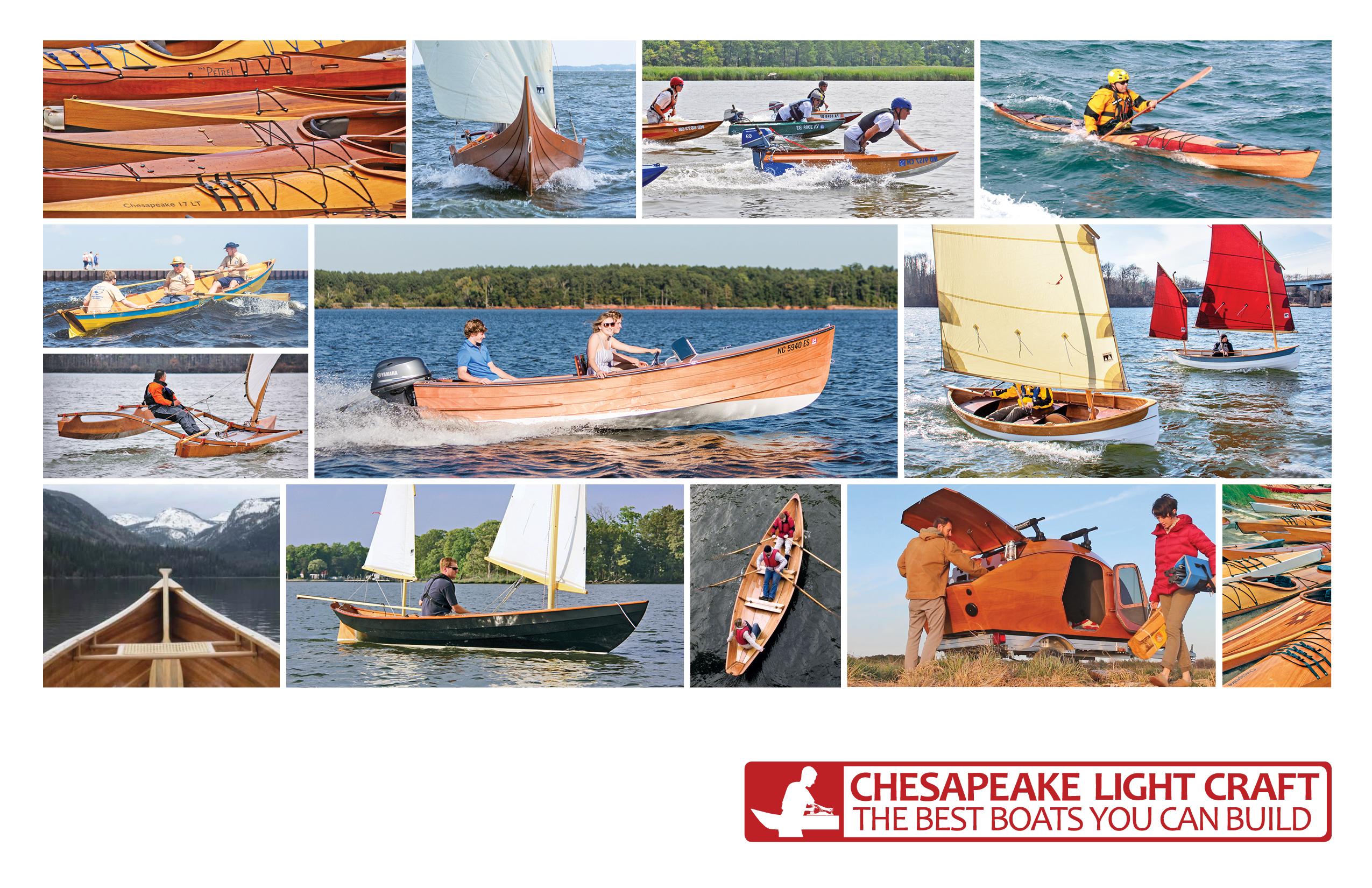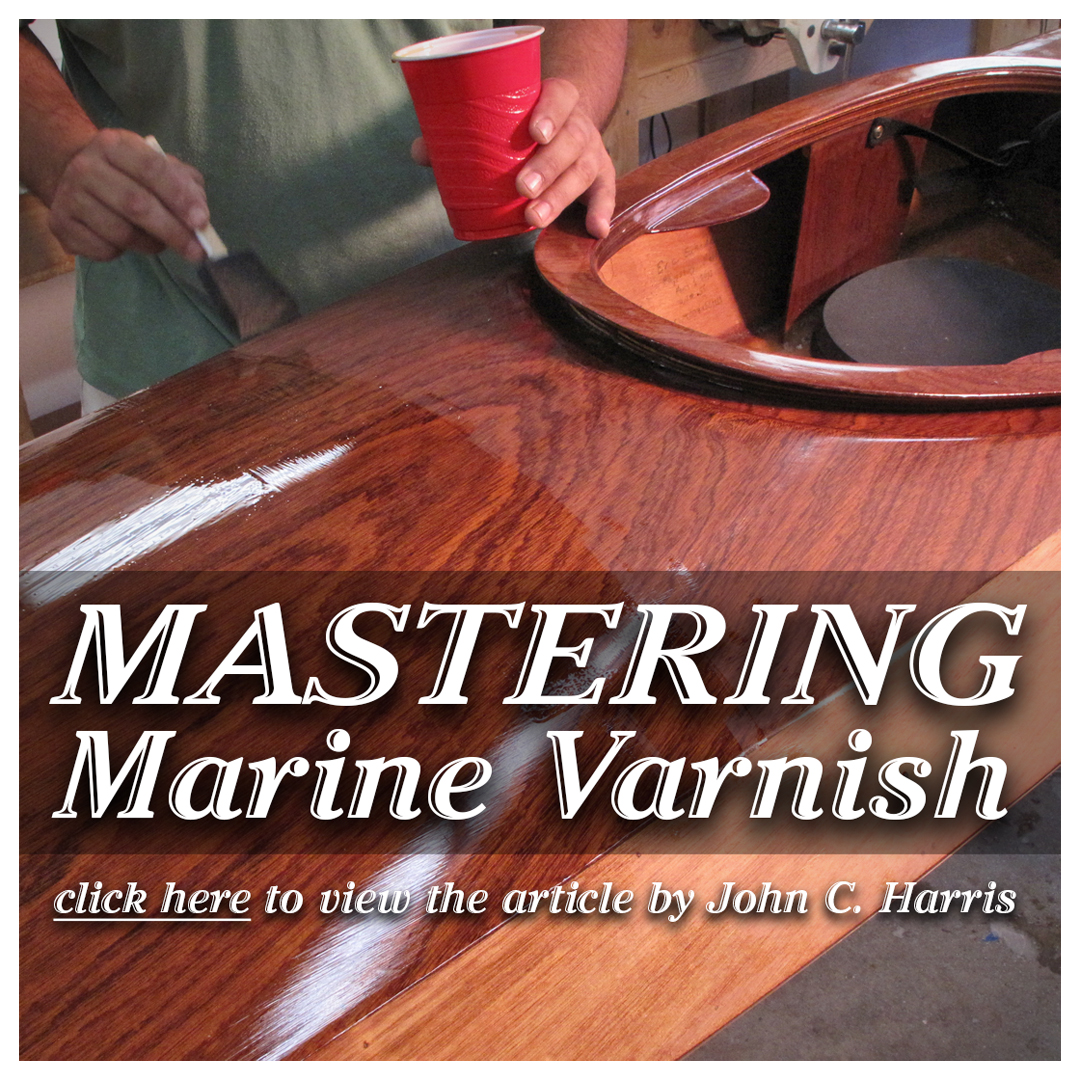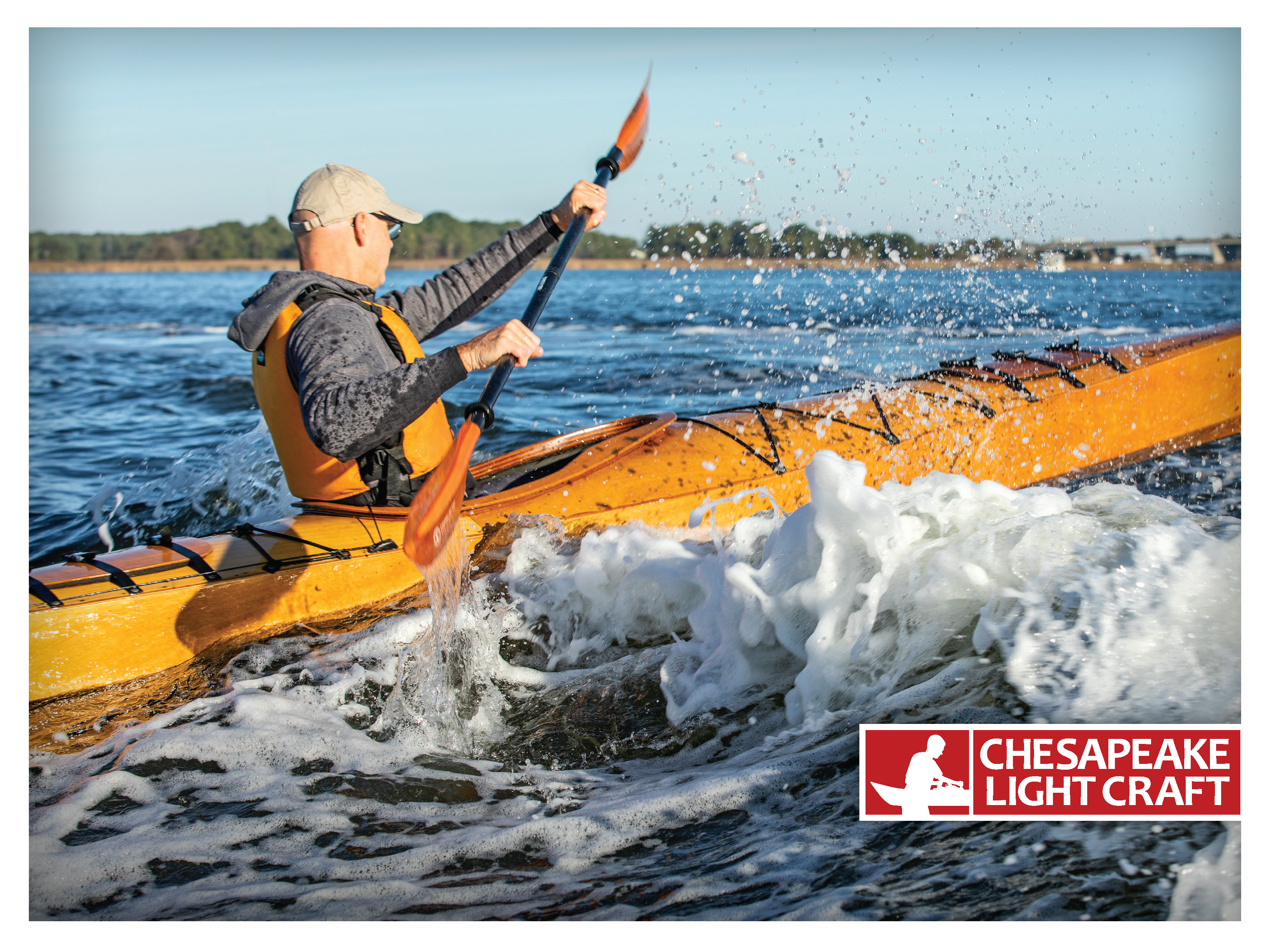Rowing to Canada for ALS
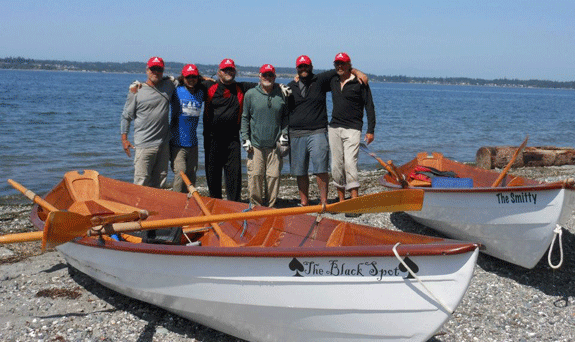
In the summer of 1970, Rick Clark and Mark Smith celebrated their high school graduation with an ambitious feat: they decided to row an antique dory about 150 miles from their homes on the Longbranch Peninsula near Gig Harbor, Washington, to the Canadian border.
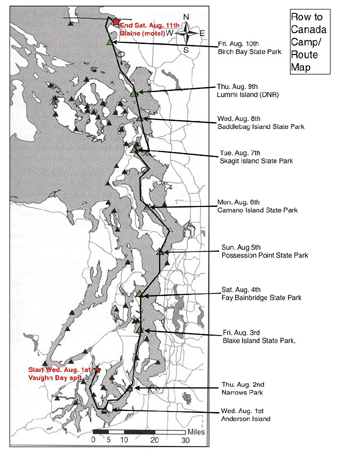 With the impulsiveness of youth and little serious planning, just two days later they set off from home on the southwestern shores of Puget Sound in the borrowed boat and headed north toward British Columbia. They had sleeping bags and a tarp, but very few other supplies, intending to camp, fish, and forage along the way. That 11-day adventure began as a spur-of-the-moment act of 18-year-old temerity, but it became a feat they both marked as a significant milestone in their lives.
With the impulsiveness of youth and little serious planning, just two days later they set off from home on the southwestern shores of Puget Sound in the borrowed boat and headed north toward British Columbia. They had sleeping bags and a tarp, but very few other supplies, intending to camp, fish, and forage along the way. That 11-day adventure began as a spur-of-the-moment act of 18-year-old temerity, but it became a feat they both marked as a significant milestone in their lives.
Over the years, the two men lost touch, until, in 2011, Rick learned that his friend Smitty had lost a three-year battle with ALS, or Lou Gehrig’s Disease. As he retold the story of rowing to Canada after Smitty’s death, the young men’s adventure began to resonate in Rick’s mind and family and friends encouraged him to consider an attempt to recreate it.
By happy coincidence, Rick’s brother Geoff found a Chesapeake Light Craft class building Northeaster Dories in nearby Port Townsend last March. Deciding that the boats and the opportunity to build them with professional guidance in the classroom would be a perfect fit for the new adventure, Rick and Geoff enrolled and built two Northeasters; later they and other members of the rowing team – which had grown to include their brother Dana, friend Peter Schroeder, Dana’s son Richard, and Rick’s nephew, Kilian Olszewsky – built a third to add to the fleet as the concept of a Row to Canada to raise funds for the ALS Association in Smitty’s memory began to solidify into reality.
Then, one early morning last August, the six rowers set out from the same spit on Vaughn Bay in their three gleaming new Northeasters and headed for the Canadian border. This time, they had a solid plan, plenty of supplies and safety gear, and a shoreside support team including a film crew, as well as a cheering section made up of hundreds of supporters and Facebook fans along the way.
Eleven days later, they crossed and re-crossed the Canadian border and landed at the finish line in Blaine, Washington.
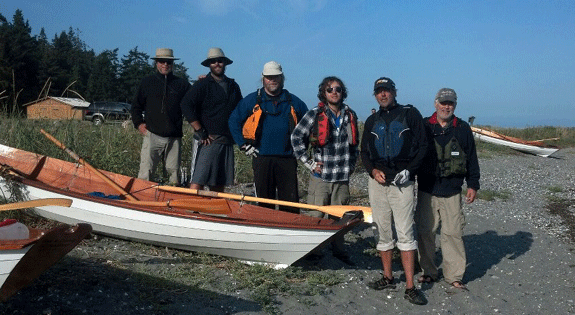 “The effort was a wonderful success in which many people were swept up,” Rick Clark wrote in a thank-you letter to supporters, including CLC. “The Row itself was challenging, to say the least. But the injuries were few and relatively minor. The weather was unseasonably warm (even hot) and dry, the camping was quite good, the views were spectacular, the water deep and ever shifting in color, and the camaraderie made it a lot of fun. Who knows? We may do it again! Maybe not ....”
“The effort was a wonderful success in which many people were swept up,” Rick Clark wrote in a thank-you letter to supporters, including CLC. “The Row itself was challenging, to say the least. But the injuries were few and relatively minor. The weather was unseasonably warm (even hot) and dry, the camping was quite good, the views were spectacular, the water deep and ever shifting in color, and the camaraderie made it a lot of fun. Who knows? We may do it again! Maybe not ....”
They also managed to raise more than $8,000 for ALS research, a great deal more than any other private campaign in their area. The fund raising is still ongoing and contributions are still being accepted; to make a donation, visit the ALS website.
CLC is proud to have been a small part of this effort.
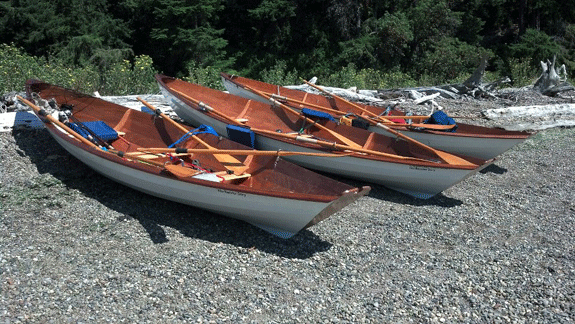

 return to section:
return to section: 



